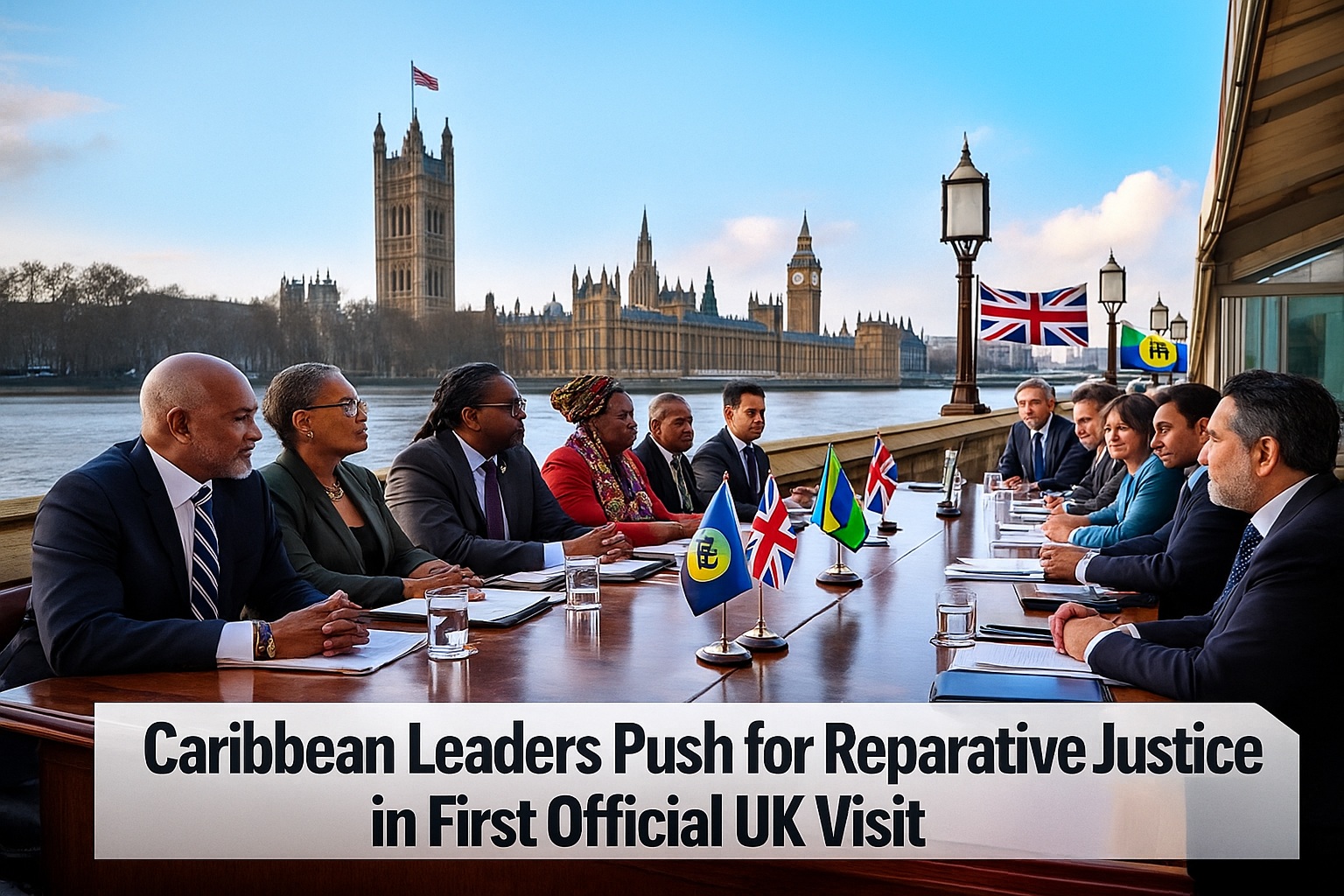Advertisement

By Tom Clifford
Injustice sometimes takes a long time to be addressed, even acknowledged, but finally one of history’s greatest crimes will be at least discussed this week.
A delegation from the body leading the Caribbean’s slavery reparations movement will be in Britain for a “historic” first official visit to advocate for former British colonies.
UK parliamentarians, Caribbean diplomats, academics and civil society groups will meet in London with delegates from the Caricom Reparations Commission from Monday to Thursday.
The visit, organized in collaboration with the Institute of Commonwealth Studies, hopes to strengthen strategic partnerships and increase public knowledge about the region’s colonial past and its reparations movements.
It has its work cut out. We may live in an age of instant communication but knowledge about slavery is not widespread.
More than 12.5 million Africans were kidnapped, forcibly transported to the Americas and sold into slavery, between the 15th and 19th century.
Ahead of the visit, Dr. Hilary Brown, a member of the delegation and Caricom’s programme manager of culture and community development, said:
“The Caricom Reparations Commission advocacy visit to the UK is historic, as it is the first of what we anticipate will be a series of engagements to raise consciousness and awareness, correct misconceptions about the reparations movement and build strategic partnerships to take this critical agenda to right historical wrongs forward.”
Caribbean governments and society leaders have long been calling for recognition of the lasting legacy of colonialism and enslavement. This should include, they argue, reparative justice from former colonizers, including a full formal apology and forms of financial reparations.
There has been a backlash in some countries against reparations and many European leaders have refused even to talk about them, with opponents arguing that today’s states and institutions should not be held responsible for historical wrongs.
In March, a poll commissioned by the Repair Campaign, an independent movement supporting calls for reparations, discovered that most Britons were ignorant of the scale and lasting legacy of Britain’s role in transatlantic slavery and colonialism. The Repair Campaign is a social movement for reparatory justice in the Caribbean, guided by the CARICOM Reparations Commission.
The issue of slavery and compensation grabbed the headlines at last year’s Commonwealth leaders summit in Samoa. At the summit, the British government ruled out paying reparations or issuing a formal apology for the UK’s role in the transatlantic slave trade.
British Prime Minister Keir Starmer agreed that the slave trade was abhorrent but countries should be “looking forward” and addressing current challenges such as climate change, he argued.
However, the UK government, under pressure from Commonwealth leaders to engage in a “meaningful, truthful and respectful” conversation about Britain’s past, later agreed to discuss non-financial reparations, such as restructuring financial institutions and providing debt relief.
Related articles:
Wycliffe Smith attends Slavery Conference on Curacao
Sign in Solidarity with the Calls for Reparations>>>
###
Publiser’s note: AI images used solely for illustration purposes.
###
ADVERTISEMENT







